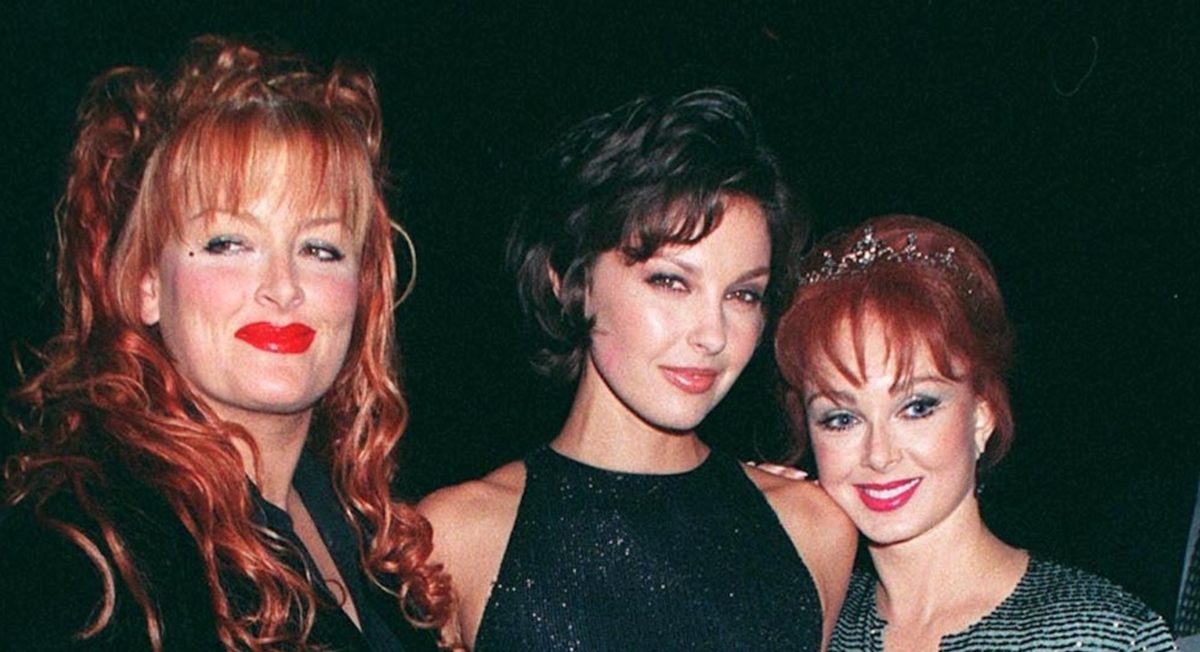Ashley Judd is using her experience to make a change for others. As Mamas Uncut previously reported, on April 30, just one day before she was supposed to be inducted into the Country Music Hall of Fame, Naomi Judd died by suicide.
As Ashley previously admitted, she was the one who found her mom the morning she took her own life. A firearm was nearby.

Ashley Judd Shares What Haunts Her the Most After Finding Her Mom the Day She Passed Away
Now in an op-ed share with The New York Times, Ashley says it’s what she endured in the aftermath of her mom’s suicide that is making her take action.
“The trauma of discovering and then holding her laboring body haunts my nights,” Ashley wrote, calling it “the most shattering day of my life.”
As Ashley continued, she added, “Naomi lost a long battle against an unrelenting foe that in the end was too powerful to be defeated. I could not help her.”
Nonetheless, Ashley wrote, she can “do something about how she is remembered. And now that I know from bitter experience the pain inflicted on families that have had a loved one die by suicide, I intend to make the subsequent invasion of privacy — the deceased person’s privacy and the family’s privacy — a personal as well as a legal cause.”
As Ashley explained, despite having just endured the traumatizing moment of finding her mom’s lifeless body, she was quickly subjected to four different interviews with law enforcement.
“In the immediate aftermath of a life-altering tragedy, when we are in a state of acute shock, trauma, panic, and distress, the authorities show up to talk to us. I felt cornered and powerless as law enforcement officers began questioning me while the last of my mother’s life was fading. I wanted to be comforting her, telling her how she was about to see her daddy and younger brother as she ‘went away home,’ as we say in Appalachia.”
Ashley admitted the whole experience lacked sensitivity, leaving her feeling interrogated and like a possible suspect in her mother’s suicide.
And while she hopes to change the way law enforcement deals with suicide, Ashley said she doesn’t blame the police for how they handled the situation that day, saying they were “simply following terrible, outdated interview procedures.”
Ashley also discussed the August 2 courtroom win in which a judge agreed to seal Naomi’s death investigation. As Mamas Uncut previously reported, the court order filed by Naomi’s daughters, Wynonna and Ashley Judd, and her husband Larry Strickland, asked that the investigation into Naomi’s death remain private.
As Today reported, the records that will now be sealed depicted Judd in a “graphic manner.” Furthermore, the family admitted that because the records contact photo and video evidence, releasing such information to the public would cause “emotional distress, pain, and mental anguish.”
In the op-ed for The New York Times, Ashley explained that “this profoundly intimate personal and medical information does not belong in the press, on the internet or anywhere except in our memories. We ask because privacy in death is a death with more dignity.”
Ashley says her family “stands united” in their decision to “assert what we believe is our legal right to protect our privacy in this specific matter,” even if that means “there will be inevitable questions” about their decision to do so.
“We stand united as a family and hold fast to our belief that what we said and did in the immediate aftermath of Naomi’s death should remain in the private domain — just as it should for all families facing such devastation,” Ashley writes.
Naomi’s autopsy report confirmed what the public already knew, that the country star died by suicide at the age of 76 years old on April 30. The report also revealed that several prescription drugs were also found in Naomi’s system, including medication for post-traumatic stress disorder and bipolar disorder.